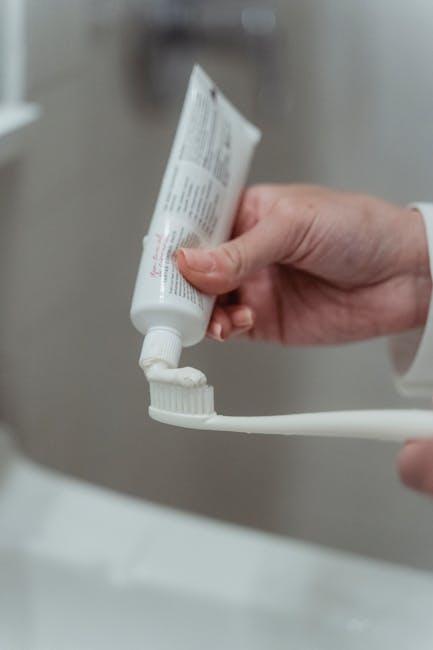Schools Asked to Supervise Toothbrushing for Young Children – BBC
Introduction
Oral health is a vital part of children’s overall wellbeing, yet dental problems remain one of the most common health issues among young children in the UK. Recognizing the need to improve dental hygiene, schools across the country are now being asked to supervise toothbrushing for young children, as recently highlighted in a BBC report. This initiative aims to foster good oral hygiene habits early, potentially reducing dental decay and improving children’s health outcomes significantly.
Why Are Schools Encouraged to Supervise Toothbrushing?
The push for supervised toothbrushing programs in schools stems from growing concerns over childhood dental decay and its long-term effects. According to NHS statistics, nearly one quarter of five-year-olds in England have tooth decay, with many requiring emergency dental treatment. Schools — where children spend a significant portion of their day — are seen as a strategic setting to support oral hygiene education and daily routines.
Key Reasons Behind This Initiative
- Improve Dental Health: Early supervision encourages correct brushing techniques and helps reduce tooth decay.
- Promote Lifelong Habits: Regular toothbrushing at school reinforces habits that children carry into adulthood.
- Address Inequalities: Helps close oral health gaps for children from disadvantaged backgrounds who may have limited access to dental care.
- Reduce NHS Burden: Preventing decay lowers the need for costly dental treatments and hospital admissions.
Benefits of Supervised Toothbrushing Programs for Children
Implementing toothbrushing supervision in schools offers numerous advantages to children, parents, and the wider community:
- Enhanced Oral Hygiene: Teachers and caregivers ensure children brush for the recommended two minutes effectively.
- Early Dental Education: Children learn the importance of oral health and how to maintain it daily.
- Reduced Dental Anxiety: Familiarity with oral care routines helps lessen fear related to dentists and dental treatments.
- Social Development: Group brushing promotes positive peer influence for maintaining good habits.
- Support for Parents: Reinforces oral health routines especially where home supervision may be inconsistent.
Practical Tips for Schools to Implement Supervised Toothbrushing
To establish a successful supervised toothbrushing program, schools should consider the following practical steps:
- Obtain Parental Consent: Ensure parents understand and agree to their child’s participation in the program.
- Provide Supplies: Toothbrushes, fluoride toothpaste, and rinsing cups should be available and hygienic.
- Training Staff: Teachers and teaching assistants should receive clear guidelines on toothbrushing supervision protocols.
- Allocate Time: Incorporate toothbrushing into daily routines, ideally after lunch or snack breaks.
- Maintain Hygiene: Follow infection control procedures to store and disinfect toothbrushes properly.
- Track Progress: Use simple monitoring and feedback strategies to encourage continued participation and improvement.
Case Study: How a Primary School Successfully Introduced Toothbrushing Supervision
One primary school in Manchester has been piloting a supervised toothbrushing program that has garnered positive feedback from staff, children, and parents. Here’s a brief overview of their approach and measurable improvements:
| Aspect | Details | Outcome |
|---|---|---|
| Implementation | Dedicated 10 minutes after lunch for supervised brushing | Routine embedded smoothly into daily schedule |
| Parental Involvement | Information sessions and consent forms sent home | Over 90% parental approval rate |
| Staff Training | Workshops on oral hygiene education and hygiene protocols | Increased staff confidence and engagement |
| Student Feedback | Fun and social activity incorporated into routine | Improved enthusiasm for toothbrushing |
| Results | Reported decline in dental issues after 6 months | Less absenteeism due to dental pain |
Expert Opinion and Latest BBC Coverage
According to the BBC, dental health experts and public health officials strongly support the school-supervised toothbrushing initiative. They emphasize that early intervention in schools can act as a crucial step toward combating widespread childhood tooth decay. Dr. Samantha Turner, a pediatric dentist featured on BBC, stated:
“Supervised toothbrushing in schools is a cost-effective measure that can transform children’s dental futures. Through consistent education and support, we can help children develop habits that prevent pain, missed school days, and complex dental treatments later in life.”
The BBC report also highlights government support towards such public health measures, with funding options being explored for widespread adoption in schools throughout the UK.
How Parents Can Support Toothbrushing at Home
While school programs provide a valuable foundation, parents remain critical partners in maintaining optimal oral health. Here are some practical tips for parents to support toothbrushing at home:
- Establish a consistent twice-daily toothbrushing routine.
- Use child-friendly, fluoride toothpaste recommended by dentists.
- Make toothbrushing fun by using songs, timers, or reward charts.
- Lead by example and brush your own teeth alongside your child.
- Schedule regular dental check-ups from an early age.
Conclusion
In response to alarming statistics on childhood dental decay, schools are now being encouraged to supervise toothbrushing routines for young children—a move backed by the BBC and health experts alike. This proactive approach not only improves oral health but also instills lifelong habits, reduces oral health inequalities, and supports overall child wellbeing. By collaborating with parents, staff, and dental professionals, schools can play a pivotal role in shaping a healthier generation with bright smiles and strong teeth.
As awareness grows, it’s vital for communities to embrace these programs and support continuous oral health education—because healthy children today mean a healthier society tomorrow.


